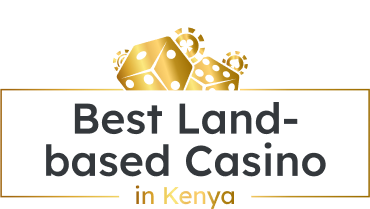🃏Mastering the Mental Game: 9 Ways to Improve Your Psychological Poker Skills

Poker involves mathematical odds, strategic adjustments, perceptive reads, and timely bluffs. However, the mental game is equally crucial. Psychology influences discipline, focus, emotional control, and dealing with pressure. By improving key mental skills, you gain a huge advantage at the table. Let’s explore 9 methods to upgrade your psychological poker abilities.
- Emotional Regulation Through Practice
Difficult hands and bad beats ignite strong emotions like frustration, anger, and impatience. Unfortunately, these feelings cloud judgment and cause poor play. Begin training yourself like a boxer – remain calm and analytical regardless of taking hits. Set up low-stakes home games and purposely put yourself in tough situations. Practice maintaining a neutral demeanor despite inner turmoil. Force yourself to think rationally through difficult spots. Discuss afterwards to identify leaks in composure. The more you simulate pressure scenarios, the more robotic and unflappable you’ll become during real-money play.

- Studying Body Language and Microexpressions
Reads are an essential poker weapon, and physical tells provide valuable insight. Spend time studying body language and subtle “microexpressions” that betray hidden information. Watch poker videos focused on behavioral analysis, pausing frequently to assess whether players seem confident or uncertain based purely on physical reactions. Television shows featuring bluffing and deception also sharpen these observation skills. Regularly test yourself by guessing whether a player is strong or weak from their subtle gestures and facial ticks. With enough practice, you’ll pick up on even fleeting reactions.
- Eliminating Your Own Tells
Just as important as reading physical tells is eliminating your own. Many players unconsciously telegraph hand strength through nervous tics, aggressive chip handling, posture, and reactive expressions. Set up a camera and record yourself playing poker, then scrutinize the footage for any potential leaks. Look for repetitive mannerisms linked to strong or weak holdings. Becoming aware of personal tendencies makes it easier to curb them. Tell a trusted friend to watch for your reveals. Consistently presenting a neutral demeanor, regardless of card strength, is vital.
- Simulated Pressure Training
Keep composure during major pots through repetitive exposure to tense situations. Recreate the stress of huge pots by raising stakes or bringing in trash talking during low-key home games. The exaggerated tension simulates the butterflies and tunnel vision that accompany massive pots. Push yourself to play normally under these manufactured pressures. Get comfortable being uncomfortable. Over time, practice breeds mental steadiness during actual high-leverage moments. What felt immense becomes routine, transforming how you handle and rebound from adversity.

- Practicing Patience and Discipline
Avoid impatience and impulsive decisions by intentionally slowing down your play. Make patience a habit through purposeful practice. Play tighter overall and resist overplaying premium hands. Don’t allow yourself to continuation bet without pause for thought. Constantly ask “Does this bet make logical sense?” and “Am I playing too fast and loose?” Count to ten before decisions to underscore thoughtful play. These tactics drill home the value of slowing down. With disciplined time between actions, you become less prone to expensive impulsive mistakes.
- Objective Session Reviews
Record poker sessions digitally and rewatch with a critical eye, or review hand histories and take notes. Analyze decision quality and hand outcomes dispassionately. Look for emotional triggers like frustration over suck-outs or impatience with deceptive players. Identify mental mistakes made while fatigued. Be honest about tendencies toward arrogance, denial, or going on tilt. Develop countermeasures tailored to your personal leaks. Regular mental game checkups reinforce positive changes over time.
- Studying Poker Psychology
Books like The Psychology of Poker, Poker Tilt, and Your Worst Poker Enemy provide research and strategies on mental skills. Learn the science behind emotional regulation, controlling biases, coping with variance, and making rational choices despite stressors. Understand the root causes of impatience, arrogance, and tilt based on human nature. With this conceptual framework, you can preemptively deal with mental roadblocks. Internalize key lessons through repetition and conscious application.
- Talking Through Hands Out Loud
Verbalize your thought processes out loud when reviewing past hands, both wins and losses. Explain the reasons behind each action taken. Detail the emotions experienced and calculations made. Get granular on the smallest considerations. This trains methodical step-by-step thinking. You’ll quickly notice flaws in logic that escaped you before. Verbalizing hands creates beneficial habits applicable at the tables. Discussing with poker friends provides additional feedback.
- Meditating Before Play
Meditation provides neurological benefits directly applicable to poker, including increased focus, emotional control, and systematic thinking. Clear your mind before sessions through simple breathing, mantra, or visualization techniques. Meditation drops you into a relaxed yet laser-focused state ideal for poker’s mental demands. Just 5-10 minutes before play works wonders. Many top players and mental game coaches now regard meditation as an essential component of pre-game preparation.
Strengthening psychological skills takes time, but the investment pays continuous dividends. By mastering the mental game, you transform yourself into a tougher, smarter, and ultimately more successful player. Implement targeted improvements through the methods above. Welcome to VIP casino in Nairobi MOYO and test your real skills.






